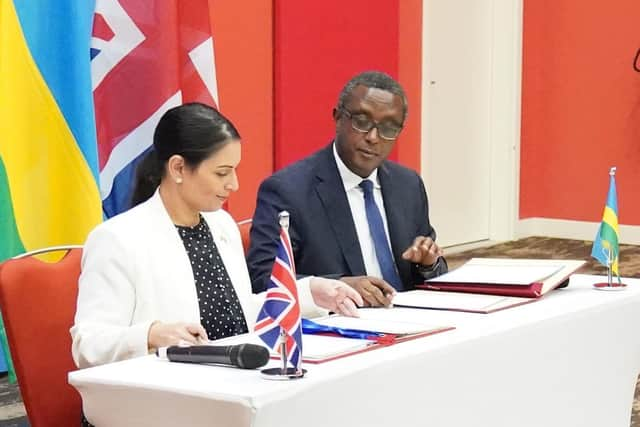Questions over asylum strategy after Government announces deal with Rwanda - The Yorkshire Post says
However this promise of a better life all too often proves an alluring and easily exploitable dream for criminal gangs, who charge migrants vast sums of money to transport them to the UK from France.
Inevitably this often leads to tragedy, as seen when 31 men, women and children lost their lives in the English Channel last November when their boat sank beneath the waves.


Advertisement
Hide AdAdvertisement
Hide AdIn a bid to combat these crossings the Government has announced a deal with Rwanda to send refugees to the East African country to be “processed offshore”.
The Government maintains such a move will act as a deterrent to those seeking to cross by sea although critics have questioned the exorbitant cost of such a move, as well as the humanity of sending vulnerable people 4,000 miles to a nation with a questionable human rights record.
Those who remain in the UK to have their asylum status assessed will be housed in a number of centres, including one at Linton-on-Ouse, near York.
This news will lead residents in the area to understandably seek reassurances as to what this will mean for their community, and the village’s MP Kevin Hollinrake has pledged to put the locals “at the heart of these plans”.
Advertisement
Hide AdAdvertisement
Hide AdHowever the wider asylum plan needs greater scrutiny. It is clear it will come at a higher cost to the tax payer than the existing system and whether or not it will deter criminal gangs from shipping refugees across the perilous Channel remains questionable.
What is needed is a multinational approach across Europe that matches the sophistication and determination of these heartless human traffickers, who see the horrific spectre of bodies washing ashore as nothing more than the cost of doing business.
